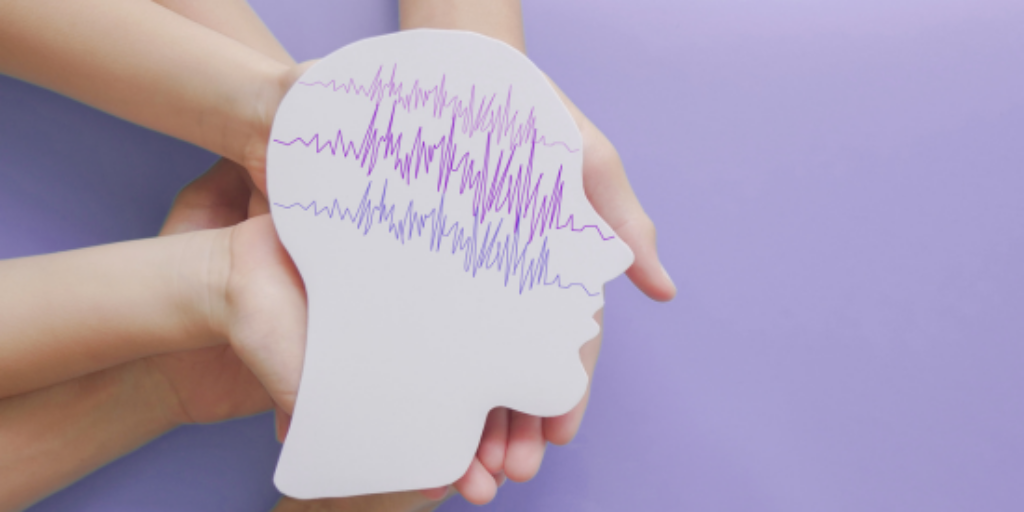Childhood trauma refers to distressing and adverse experiences that occur during a person’s early years, typically before the age of 18. These experiences can take various forms, ranging from physical or emotional abuse to neglect, household dysfunction, witnessing violence, and even experiencing natural disasters. The impact of childhood trauma is far-reaching and has been the subject of extensive research, shedding light on its profound effects on an individual’s mental health and overall well-being throughout their adult life.
When children are exposed to traumatic events or adverse environments, their developing brains and emotional regulation systems can be significantly disrupted. These disruptions can lead to the development of maladaptive coping mechanisms as a means to deal with overwhelming stress and emotions during childhood. Unfortunately, for some individuals, these coping strategies persist into adulthood, contributing to the emergence of mental health disorders such as anxiety, depression, and post-traumatic stress disorder (PTSD).
The effects of childhood trauma go beyond the psychological realm and extend to the neurobiological aspects of an individual’s brain. Chronic stress and exposure to trauma during early development can cause lasting changes to key brain regions responsible for emotional processing, memory, and decision-making. These alterations may increase an individual’s vulnerability to developing mental health disorders later in life, as their brains have been shaped by early adverse experiences.
Moreover, childhood trauma can significantly influence the formation of secure attachments with caregivers during a crucial period of emotional development. Children who have experienced trauma may struggle to trust others, face difficulties forming healthy relationships, and exhibit patterns of insecure attachment in adulthood. These challenges in interpersonal relationships can contribute to the development of various mental health disorders, further complicating the impact of childhood trauma.
Nevertheless, it is crucial to recognize that not all individuals who experience childhood trauma will develop mental health disorders. Resilience, which refers to an individual’s ability to adapt positively to adversity, plays a vital role in mitigating the negative effects of childhood trauma. Supportive relationships, access to mental health services, and a stable and nurturing environment can act as protective factors, reducing the likelihood of developing mental health disorders in adulthood.
What is childhood trauma?
Childhood trauma is deeply impactful because it occurs during critical periods of brain development and personality formation. The developing brain is highly sensitive to environmental influences during early childhood, and traumatic experiences can disrupt healthy neurobiological development. Trauma can affect cognitive, emotional, and social functioning, leading to various short-term and long-term consequences.
The effects of childhood trauma can be wide-ranging and can manifest in a variety of ways, including but not limited to:
- Emotional consequences: Children who experience trauma may struggle with intense emotions, such as fear, anger, sadness, and anxiety. They may have difficulty regulating their emotions and may be prone to emotional outbursts or emotional numbing.
- Behavioral consequences: Trauma can influence a child’s behavior, leading to aggression, withdrawal, impulsivity, or difficulty in forming healthy relationships with peers and adults.
- Cognitive consequences: Childhood trauma can impact cognitive abilities, including attention, memory, and problem-solving skills.
- Physical health consequences: Research has shown that childhood trauma is linked to increased risks of various physical health issues later in life, such as cardiovascular problems, autoimmune disorders, and chronic pain.
- Mental health consequences: Childhood trauma is strongly associated with the development of mental health disorders in adulthood, including depression, anxiety disorders, post-traumatic stress disorder (PTSD), and borderline personality disorder.
It’s important to note that not all individuals who experience childhood trauma will develop mental health issues or long-term negative consequences. Resilience, social support, and access to appropriate interventions can play significant roles in mitigating the impact of childhood trauma and promoting healthier outcomes for those affected. Understanding and addressing childhood trauma is crucial for supporting the well-being and mental health of individuals as they progress into adulthood.
How does it lead to mental health disorders in adulthood?
Childhood trauma is deeply impactful because it occurs during critical periods of brain development and personality formation. The developing brain is highly sensitive to environmental influences during early childhood, and traumatic experiences can disrupt healthy neurobiological development. Trauma can affect cognitive, emotional, and social functioning, leading to various short-term and long-term consequences.
The effects of childhood trauma can be wide-ranging and can manifest in a variety of ways, including but not limited to:
- Emotional consequences: Children who experience trauma may struggle with intense emotions, such as fear, anger, sadness, and anxiety. They may have difficulty regulating their emotions and may be prone to emotional outbursts or emotional numbing.
- Behavioral consequences: Trauma can influence a child’s behavior, leading to aggression, withdrawal, impulsivity, or difficulty in forming healthy relationships with peers and adults.
- Cognitive consequences: Childhood trauma can impact cognitive abilities, including attention, memory, and problem-solving skills.
- Physical health consequences: Research has shown that childhood trauma is linked to increased risks of various physical health issues later in life, such as cardiovascular problems, autoimmune disorders, and chronic pain.
- Mental health consequences: Childhood trauma is strongly associated with the development of mental health disorders in adulthood, including depression, anxiety disorders, post-traumatic stress disorder (PTSD), and borderline personality disorder.
It’s important to note that not all individuals who experience childhood trauma will develop mental health issues or long-term negative consequences. Resilience, social support, and access to appropriate interventions can play significant roles in mitigating the impact of childhood trauma and promoting healthier outcomes for those affected. Understanding and addressing childhood trauma is crucial for supporting the well-being and mental health of individuals as they progress into adulthood.
Who is most at risk of suffering from these effects?
Individuals who experience childhood trauma are at a higher risk of suffering from the effects of trauma on their mental health and well-being in adulthood. However, it’s essential to understand that not everyone who experiences childhood trauma will develop mental health disorders. The risk of suffering from the effects of childhood trauma can vary based on several factors:
Severity and Type of Trauma: The more severe and persistent the traumatic experiences are during childhood, the higher the risk of negative effects on mental health. Different types of trauma, such as physical or sexual abuse, neglect, and witnessing violence, can also have varying impacts on mental health outcomes.
- Early Onset of Trauma: Trauma experienced at a very young age, particularly during critical periods of brain development, can have more profound and lasting effects on an individual’s psychological and neurobiological development.
- Lack of Social Support: Children who lack supportive and stable relationships with caregivers or have a limited social support network may have a higher risk of adverse mental health outcomes following trauma.
- Prolonged Exposure to Stress: Chronic or repeated exposure to stressful and traumatic situations can increase the risk of developing mental health disorders in adulthood.
- Individual Resilience: Resilience refers to an individual’s ability to adapt positively to adversity. Those with higher levels of resilience may be better equipped to cope with and overcome the effects of childhood trauma, reducing their risk of mental health disorders.
- Access to Mental Health Support: Timely access to appropriate mental health interventions and support can significantly mitigate the impact of childhood trauma and promote better mental health outcomes.
- Genetic and Biological Factors: Some individuals may have genetic or biological vulnerabilities that make them more susceptible to the effects of childhood trauma on their mental health.
- Cultural and Environmental Factors: Cultural and environmental factors can influence the interpretation and coping strategies related to traumatic experiences, impacting an individual’s risk of developing mental health disorders.
- Socioeconomic Status: Children from lower socioeconomic backgrounds may face additional challenges in accessing resources and support, which can impact their mental health outcomes following trauma.
It is important to emphasize that resilience and protective factors can play a significant role in reducing the risk of adverse mental health outcomes for individuals who have experienced childhood trauma. Early intervention, supportive environments, access to mental health services, and nurturing relationships can enhance resilience and mitigate the impact of childhood trauma on mental health in adulthood. Identifying and addressing the needs of individuals who have experienced childhood trauma is crucial to providing appropriate support and promoting their well-being as they navigate through adulthood.
Practical skills for mental health practitioners working with clients who have a history of childhood trauma.
Mental health practitioners working with clients who have a history of childhood trauma require a specialized set of skills to provide effective and sensitive support. These practical skills are crucial in creating a therapeutic environment that fosters healing and growth for trauma survivors. Here are some essential skills for mental health practitioners:
- Trauma-Informed Approach: Adopt a trauma-informed approach that recognizes the impact of trauma on clients’ lives. Understand the potential triggers and retraumatization risks during therapy sessions.
- Establishing Safety and Trust: Build a safe and trusting therapeutic relationship. Create an environment where clients feel comfortable expressing themselves without fear of judgment or harm.
- Active Listening: Practice active and empathetic listening, allowing clients to share their experiences and feelings at their own pace. Be attentive to non-verbal cues as well.
- Psychoeducation: Provide psychoeducation about trauma and its effects. Empower clients with knowledge to understand their reactions and coping mechanisms better.
- Grounding Techniques: Teach grounding techniques to help clients manage overwhelming emotions and stay present during distressing moments.
- Coping Strategies: Equip clients with healthy coping strategies to manage stress and anxiety related to their trauma history.
- Emotional Regulation: Help clients develop emotional regulation skills to cope with strong emotions and prevent emotional dysregulation.
- Boundary Setting: Establish clear and appropriate boundaries in the therapeutic relationship to help clients feel safe and respected.
- Mindfulness Practices: Introduce mindfulness practices to promote self-awareness and provide clients with tools to manage distress.
- Trauma-Focused Interventions: Utilize evidence-based trauma-focused therapies, such as Eye Movement Desensitization and Reprocessing (EMDR) or Trauma-Focused Cognitive Behavioral Therapy (TF-CBT), to address trauma-related symptoms.
- Recognizing Dissociation: Be attentive to signs of dissociation and understand how to respond appropriately when working with trauma survivors.
-
Resourcing: Help clients identify and build internal and external resources that support their healing process.
By employing these practical skills and continually engaging in professional development, mental health practitioners can create a supportive and healing environment for clients with a history of childhood trauma. These skills are instrumental in promoting clients’ well-being and empowering them on their journey to recovery and growth.








